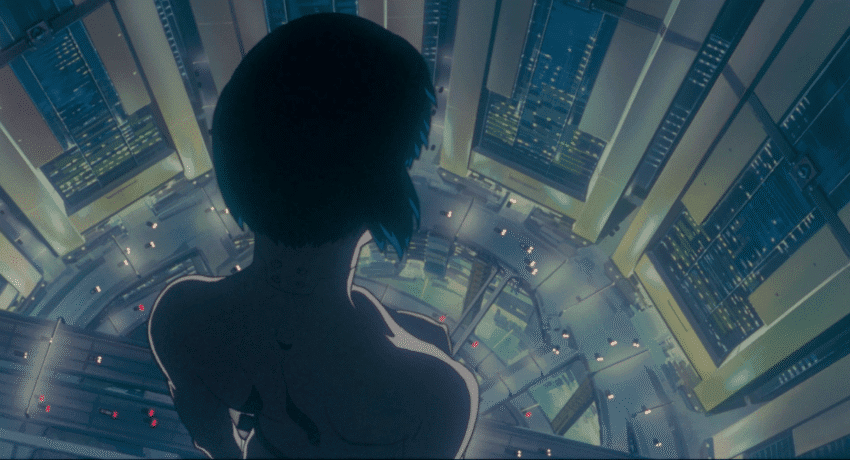
how the classic anime ghost in the The classic anime ‘Ghost in the Shell’ offers a prescient look at the future of cybersecurity, predicting the role of hackers in government espionage long before the internet became ubiquitous.
how the classic anime ghost in the
Introduction to Ghost in the Shell
Released in 1995, ‘Ghost in the Shell’ is a landmark anime film directed by Mamoru Oshii, based on Masamune Shirow’s manga of the same name. Set in a dystopian future where technology and humanity are intricately intertwined, the film explores complex themes of identity, consciousness, and the implications of cybernetic enhancements. Its narrative revolves around Major Motoko Kusanagi, a cyborg operative working for a special police unit tasked with combating cybercrime and terrorism.
The Puppet Master: A Foreboding Villain
At the heart of the film lies the character known as the Puppet Master, an advanced artificial intelligence that embodies the film’s central conflict. The Puppet Master represents a new breed of adversary—one that operates in the digital realm, manipulating both information and individuals. This character serves as a harbinger of a future where governments and organizations leverage hackers for espionage and information warfare.
Espionage in the Digital Age
When ‘Ghost in the Shell’ was released, the concept of cyber warfare was still largely theoretical. The internet was in its infancy, and the majority of the global population had yet to experience its transformative effects. However, the film’s portrayal of the Puppet Master hinted at a future where governments would increasingly rely on digital means to conduct espionage. This foresight has proven remarkably accurate, as evidenced by the rise of state-sponsored hacking and cyber espionage in the decades following the film’s release.
Real-World Implications
In the years since ‘Ghost in the Shell’ debuted, numerous incidents have underscored the film’s predictions. High-profile cyber attacks, such as the 2016 Democratic National Committee hack and the SolarWinds breach in 2020, illustrate how nation-states have adopted hacking as a tool for political gain. These events have raised critical questions about the ethics of cyber warfare, the security of national infrastructure, and the privacy of individuals.
The Evolution of Cybersecurity
As the digital landscape has evolved, so too have the methods employed by hackers and cybersecurity professionals. The film’s depiction of a world where individuals can be hacked and manipulated resonates with contemporary concerns about data privacy and security. In a society increasingly reliant on technology, the potential for malicious actors to exploit vulnerabilities has become a pressing issue.
Government Responses to Cyber Threats
Governments around the world have responded to the growing threat of cyber attacks by investing heavily in cybersecurity measures. This includes the establishment of specialized units within military and intelligence agencies dedicated to countering cyber threats. The U.S. Cyber Command, for example, was created to protect national interests in cyberspace and to conduct offensive operations against adversaries.
The Role of Private Sector in Cybersecurity
In addition to government efforts, the private sector has also played a crucial role in the evolution of cybersecurity. Companies specializing in cybersecurity solutions have emerged to provide protection against the ever-evolving tactics of cybercriminals. The collaboration between government agencies and private firms has become essential in addressing the multifaceted challenges posed by cyber threats.
Ethical Considerations in Cyber Warfare
The rise of cyber warfare raises significant ethical questions, many of which echo the themes explored in ‘Ghost in the Shell.’ The film prompts viewers to consider the implications of technology on human identity and agency. As governments increasingly turn to hackers to conduct espionage, the line between ethical and unethical behavior becomes blurred.
Privacy vs. Security
One of the most contentious issues in cybersecurity is the balance between privacy and security. As governments implement surveillance measures to protect against cyber threats, concerns about individual privacy rights have intensified. The film’s exploration of identity and consciousness serves as a reminder of the potential consequences of sacrificing personal freedoms for the sake of security.
The Future of Cybersecurity
Looking ahead, the landscape of cybersecurity is likely to become even more complex. As technology continues to advance, new vulnerabilities will emerge, and the tactics employed by hackers will evolve. The film’s portrayal of a future where individuals are manipulated by unseen forces serves as a cautionary tale about the potential consequences of unchecked technological advancement.
Stakeholder Reactions
The themes presented in ‘Ghost in the Shell’ have resonated with various stakeholders in the cybersecurity field. Cybersecurity professionals often cite the film as a source of inspiration, highlighting its relevance to contemporary issues. Academic discussions around the ethical implications of technology frequently reference the film, using it as a lens through which to examine the moral dilemmas posed by advancements in artificial intelligence and cyber capabilities.
Public Perception
Public perception of cybersecurity has also been shaped by the narratives presented in films like ‘Ghost in the Shell.’ The portrayal of hackers as both villains and heroes complicates the public’s understanding of cybersecurity issues. While some view hackers as threats to national security, others see them as necessary agents of change, exposing vulnerabilities and advocating for greater transparency.
Influence on Popular Culture
‘Ghost in the Shell’ has had a lasting impact on popular culture, influencing a generation of filmmakers, writers, and technologists. Its themes have permeated various media, from video games to television series, contributing to a broader discourse on the implications of technology in society. The film’s exploration of identity and consciousness continues to resonate in contemporary discussions about artificial intelligence and the future of human-machine interaction.
Conclusion
As we reflect on the legacy of ‘Ghost in the Shell,’ it becomes clear that the film’s predictions about the future of cybersecurity were not merely speculative. The rise of cyber warfare, the ethical dilemmas surrounding privacy and security, and the evolving role of hackers in society all echo the themes explored in this groundbreaking work. As we navigate an increasingly digital world, the lessons of ‘Ghost in the Shell’ remain relevant, urging us to consider the implications of our technological advancements and the responsibilities that come with them.
Source: Original report
Was this helpful?
Last Modified: November 20, 2025 at 7:40 am
2 views















